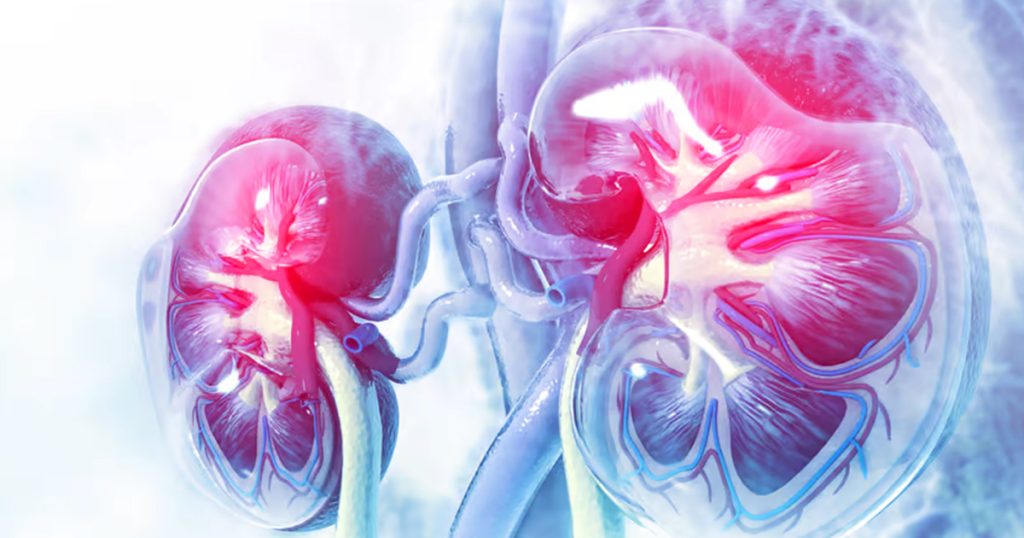8 Signs You May Have Kidney Disease

Kidney disease is a common problem among Americans. In fact, it is the 8th highest cause of mortality in the US, and 10th leading cause of life years lost. These sobering statistics signify the importance for one to be educated not only on what kidney disease is, but also on how to recognize the beginning stages of it. This knowledge can greatly improve your chances of survival, as treatment outcomes are vastly improved if kidney disease symptoms are caught early enough, and oftentimes reversible. This article will demonstrate 8 signs of kidney disease, and if any apply to you, please contact us.
First Things First, What Even Is Kidney Disease?
Prior to delving into the signs of kidney disease, it is important to understand what kidney damage is. The kidneys play a critical role in the body’s overall function and can become damaged in a multitude of ways. These various causes can be acute or chronic, meaning they may be due to something that happened suddenly or something that has slowly occurred over time.
1. Swelling
An important function of the kidneys is to filter out the toxins that the body produces. By filtering out these toxins through your urine, your body is able to continue performing its’ normal day-to-day duties. However, when your kidney begins to be damaged and it is unable to filter like normal, excess fluid and toxins can build up in your body. This swelling tends to be in areas such as your ankles, or around your eyes. Thus, be on the lookout for any increased swelling in those areas.
2. Changes in Urination
The kidneys produce urine to be able to excrete toxins from your body. Therefore, your urinary habits can tell you a lot about how your kidneys are doing. The frequency, or how often you go pee, can tell you a lot about how your kidneys are operating. For example, a sign of a urinary tract infection can be going pee more often. With kidney disease, you may find yourself peeing more or less often. In addition, if you have any pain while peeing, this can suggest that there is an issue with your kidneys.
3. Fatigue
As has been discussed above, your kidneys main job is to function as a filter for the body’s toxins. These toxins are produced by your body’s cells as they do their typical day-to-day tasks that allow your heart to beat, your lungs to breathe, your muscles to move, and so much more. These toxins, however, can build up in your bloodstream when your kidneys are not functioning as well. This in turn can cause you to feel fatigued and unable to get through your day-to-day tasks.
4. Shortness of Breath
While reading through this article, it has likely become clear that the kidneys are important to the body’s overall function. Up until this point, the signs of kidney disease have been specific to the kidneys. However, the kidneys can also impact other organs. For example, the fluid that your kidney is responsible for clearing out may end up around your lungs. With the fluid in and around your lungs, this will make it tougher for you to breathe. Therefore, if you find yourself having trouble catching your breath more than usual, it may be a sign of kidney disease.
5. History of High Blood Pressure
While knowing kidney disease symptoms is important, it is equally imperative to be aware of how other conditions can affect the kidneys. The kidneys have a robust blood flow, which is carried to them by small blood vessels called capillaries. With a history of high blood pressure, especially uncontrolled, it can damage those small blood vessels. By damaging the kidneys blood supply, it can then damage the kidneys capacity to carry out their functions. Therefore, if other symptoms from this article are pertinent to you, and you have a history of high blood pressure, you have an increased risk of having kidney damage.
6. History of Diabetes
As with high blood pressure, a history of diabetes can also be a sign of kidney damage. Diabetes negatively impacts your kidneys by damaging their filtering capacity, thereby causing kidney damage. Therefore, if you have a history of diabetes, it is critical to be even more aware of the symptoms on this list.
7. Itching
In addition to having a critical role in filtering out the body’s toxins, the kidneys regulate the body’s various electrolytes. When these electrolytes increase or decrease due to kidney damage, this can cause your body to feel itchy. Therefore, if you are having itching that can’t be explained by anything else, kidney disease could be the culprit.
8. Decreased Appetite
As has hopefully been made clear throughout this article, kidney damage can cause a wide variety of signs and symptoms. As is the case when any part of your body is not functioning properly, this can cause a general unwell feeling, which may manifest as decreased appetite. More broadly, if you are not only eating less but also feeling nauseous, it may be due to your kidney not functioning properly.
Treat Kidney Disease At Cassena Kidney Care
Kidney damage can be a scary diagnosis, and it is important to see your healthcare provider if you have any of the above symptoms. However, at Cassena Kidney Care, our dedicated team and support staff make sure you are taken care of every step of the way, including your treatment of kidney damage! Get in touch with our team of caring doctors, nurses, and staff to start your journey with Cassena today.